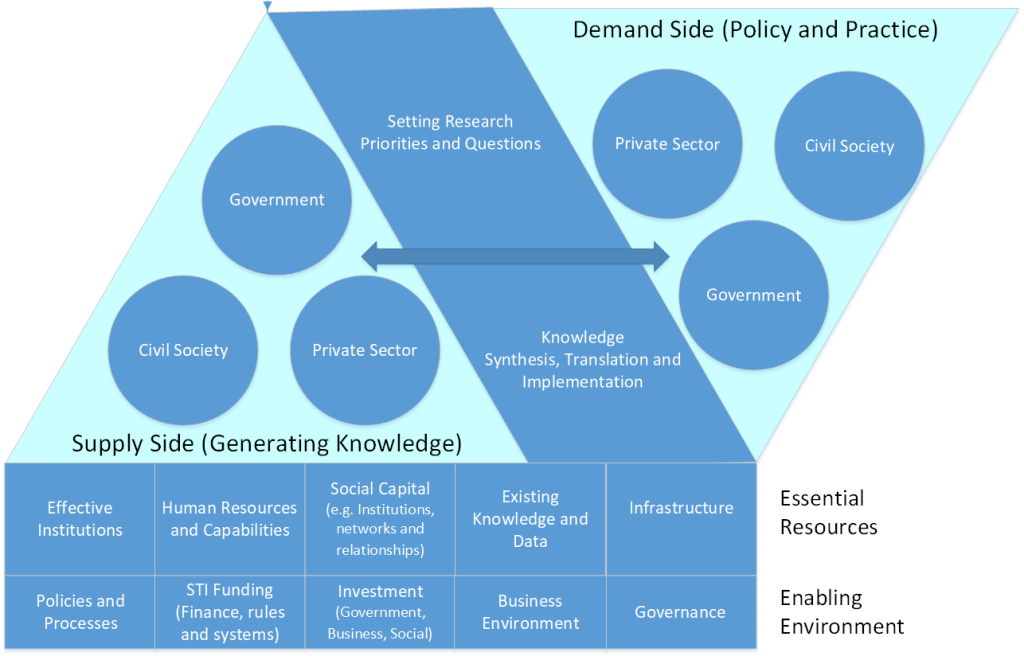Some examples of recent activity:
- Innovation in Africa. AU-NEPAD African Science and Technology Consolidated Plan of Action
- Rwanda. Science, Technology and Innovation for Results. (National system)
- Research impact and innovation. Ecosystem Services for Poverty Alleviation.
- University of Leicester. Innovation in research and innovation for development
- Nairobi Workshop (2017). Innovation for development.
- OECD Workshop (2018). Strengthening linkages between science, technology and innovation and official development assistance

Innovation can be defined as “the introduction of new things, ideas or ways of doing something” (Oxford Advanced Learners Dictionary). This can apply in terms of products, processes or policy and be undertaken by individuals, business, governments or civil society groups.
Universities play an increasingly important role in the process of innovation. Research provides: new knowledge, processes and products. Education provides graduates representing the next generation of innovators and the skills and experience they need to innovate. Universities work with business, governments and civil society to promote innovation in their local communities, nationally and globally and through this drive impact and drive results to benefit society, the economy and environment.
There is no one “model” that defines how higher education and research can drive innovation, although there are academic works that have provided frameworks for analysis of what are often called innovation systems. One of the most frequently cited being the “triple helix model” .
The discussion on innovation presented below, comes from a practical perspective as opposed to a critical academic analysis and is informed by processes to enhance innovation for development, initially in Africa and then more widely in developing and emerging economies.
